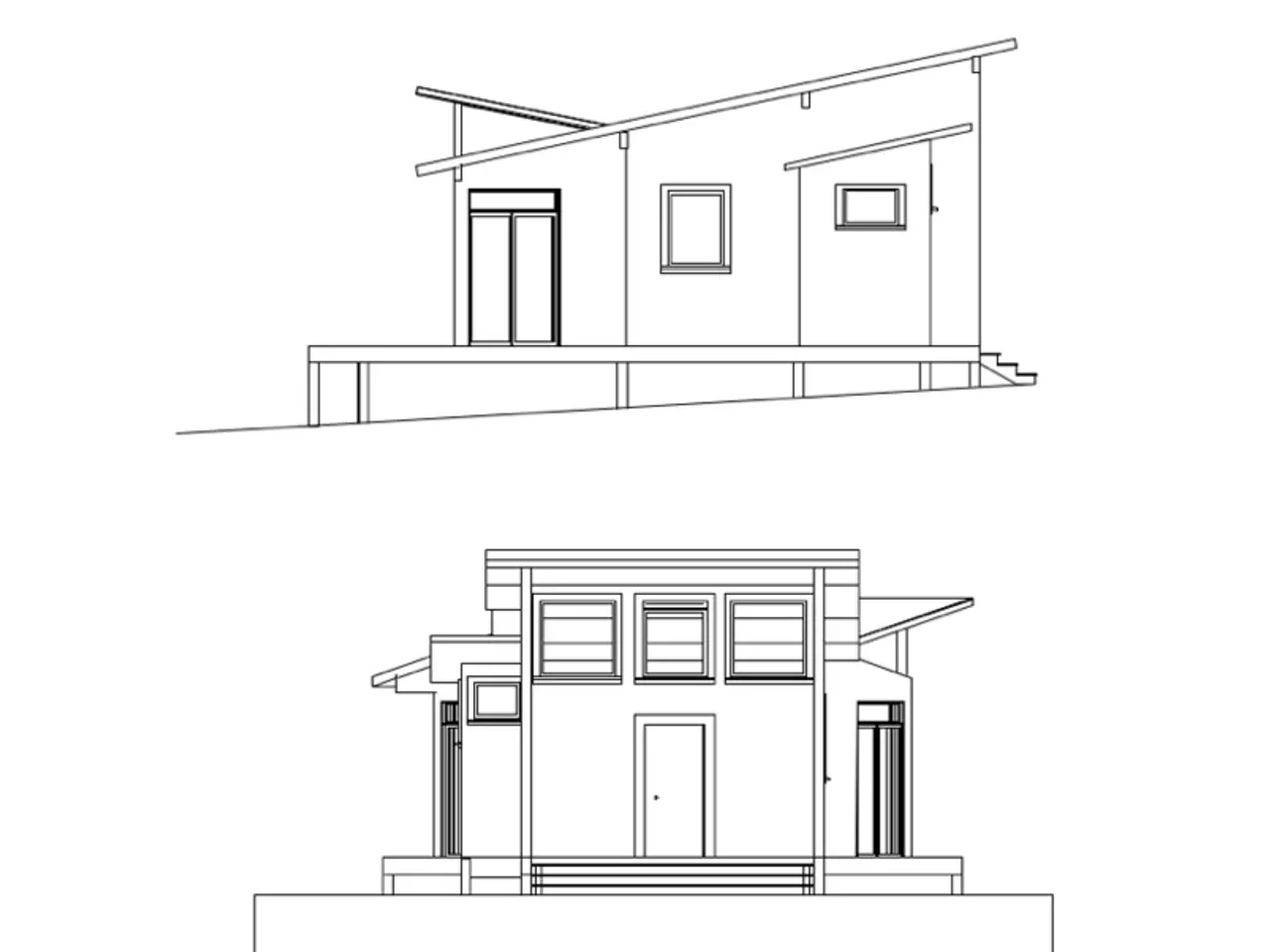Increase in Building Authorizations During the Initial Six Months
The German residential construction sector is slowly recovering after a long crisis, but it has not yet seen a trend reversal. In the first half of 2025, the sector witnessed a modest increase, with the number of building permits for residential units rising by 2.9% or 3,100, reaching 110,000 units.
This increase is primarily driven by a notable rise in approvals for single-family houses. Permits for single-family homes climbed by 14.1% year-on-year to about 21,300 units. This significant growth has contributed to the overall recovery, reflecting a modest rebound from historically low levels seen since 2010.
However, the development for multi-family houses was almost stagnant, with a 0.1% increase or 31 units, totaling 57,300 residential units. Permits for two-family houses declined by 8.3%, indicating a different trend for these types of properties.
The ongoing crisis in the construction sector, caused by higher interest rates and soaring building material costs, has ended a previous boom. Despite these challenges, there is a strong demand for single-family houses, which has been the main factor supporting the modest rebound.
Persistent structural hurdles, such as the lack of available and affordable land, especially in metropolitan areas, limit broader residential construction growth. Delays and extended construction times also slow overall supply growth, with the average duration between permit approval and project completion averaging 26 months.
Future projections remain cautious and mixed. Industry experts emphasize that despite slight increases in permits, this reflects a recovery from a very low base rather than a robust upturn. The housing shortage in metropolitan regions persists, and without effective policies to free up land and support construction, the shortage and crisis in residential building are likely to continue.
Calls from the Central Association of the German Construction Industry urge additional support measures in public budgets and more land designation to stimulate a sustained revival of residential building activity. The current cost of single-family houses in Munich is not considered a "flash in the pan" price increase, and experts expect only a limited effect from these measures for the time being. Completions of residential units in Germany are not expected to increase again until 2027, reaching around 195,000 units.
In summary, the increase in building permits for single-family homes is a significant but fragile signal of recovery amid ongoing economic and structural challenges in Germany's housing sector. The upward trend is currently confined to single-family homes, with broader construction activity stalled by land shortages and elevated costs.
Vocational training programs could be implemented to address the labor shortage in the construction sector, bolstering the workforce and contributing to the growth of the industry. Financing could be obtained through investing in these training programs, with the potential for a return on investment in the form of increased productivity and fewer delays in construction. Governments and businesses could collaborate to provide these training programs, with a focus on the specific skills required for the residential construction sector. This investment in both training and physical infrastructure could be featured in a general-news article highlighting the recovery and challenges in the German residential construction sector.




